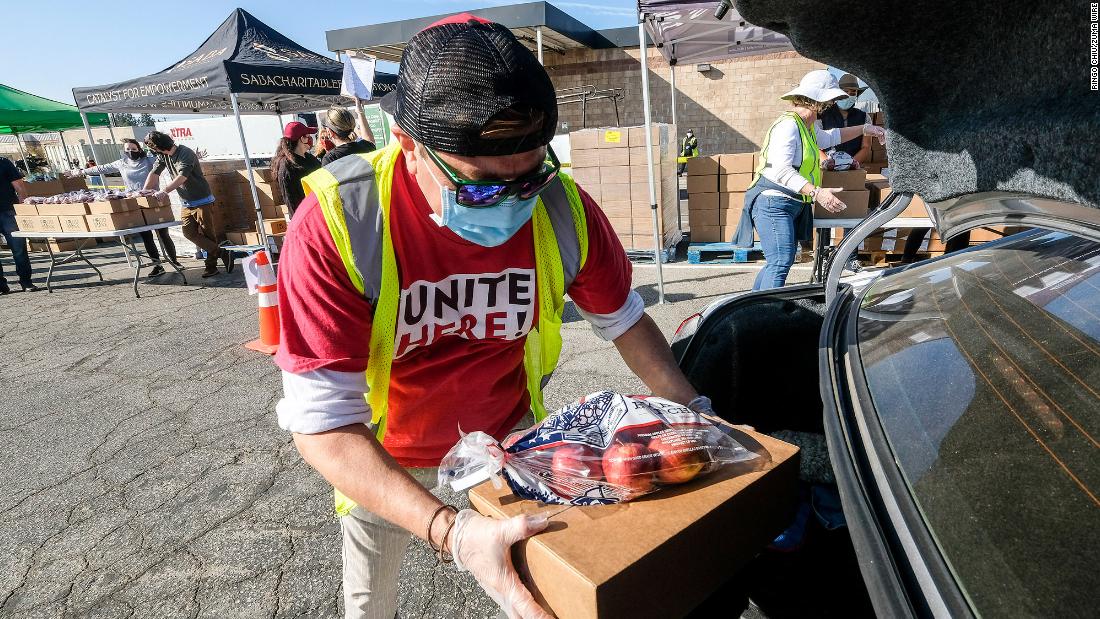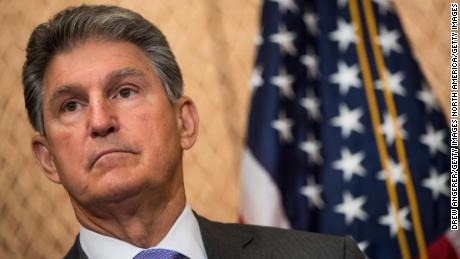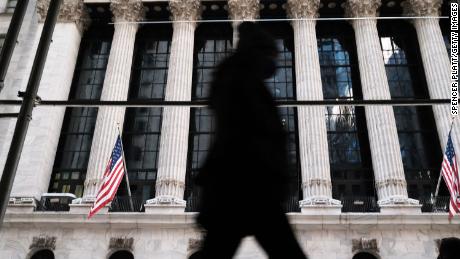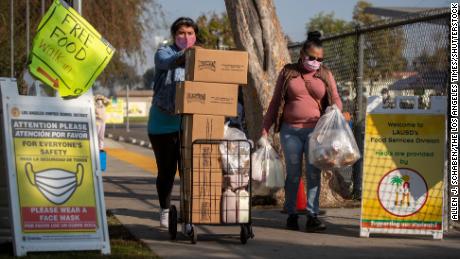America’s economy is screaming out for help. Washington needs to listen
“The recovery hasn’t quite stalled out, but it’s going to be weak as we head into the first quarter,” Ethan Harris, head of global economics at Bank of America, told CNN Business.
‘Stop fooling around’
“It would be a wake-up call to Washington to get moving on a fiscal package,” said Harris. “There is no outside force intervening telling Congress to stop fooling around and get to work.”
Normally, politicians would be under fire from financial markets. But that’s not the case today as investors celebrate coronavirus vaccine breakthroughs that brighten the 2021 outlook.
“The markets are numb to those numbers,” said Danielle DiMartino Booth, CEO and chief strategist at Quill Intelligence.
Booth said that investors and Wall Street economists are squarely focused on June 2021, when vaccines could allow for a robust reopening of the economy. However, she added, “I don’t think they’re taking into account what can occur between now and then.”
The stakes couldn’t be higher for millions of Americans
Democratic leaders have embraced the bipartisan plan, but Senate Majority Leader Mitch McConnell dismissed the package and unveiled a slimmed-down version worth around $500 billion.
However, McConnell expressed cautious optimism about a deal. “Compromise is within reach,” he said Thursday on the Senate floor. “We know where we agree. We can do this…And we need to do this.”
Without Washington action, critical unemployment programs and other safety nets will soon expire.
“An extraordinary number of single mothers will be evicted if there isn’t an extension. I don’t think this is something that either party wants,” Booth said.
Double-dip recession fears
“Many contacts cited concerns over the recent pandemic wave, mandated restrictions (recent and prospective) and the looming expiration dates for unemployment benefits and for moratoriums on evictions and foreclosures,” the Beige Book said.
Economists at Jefferies called it “one of the most troubling Beige Books we have seen in a long time” and evidence that “risks of a double-dip are starting to increase.”
“A long, dark winter is ahead for many businesses before the sun rises with a vaccine in Q2,” Jefferies wrote in a note to clients Wednesday.
The CNN Business Recovery Dashboard of real-time indicators shows how parts of the economy are rolling over:
- Restaurant reservations on OpenTable are down by 68% from a year ago, compared with negative 14% in early September
- The number of airport travelers is two-thirds lower than a year ago
- Hotel occupancy has fallen by a third, versus a 19% drop in early September
- Small business work hours have shrunk 20% from pre-crisis levels
Of course, some parts of the US economy are doing quite well.
Yet the pandemic is accelerating the demise of physical stores — and those are the ones that employ the most workers. That means the hiring boom for seasonal retail workers may not materialize.
“Brick-and-mortar is really going to suffer this holiday season,” said Harris, the Bank of America economist. “We’re likely to see a holiday season that looks okay from a sales perspective, but not from a salesperson perspective.”
“If we’re going to have a nice second wave of recovery,” Harris said, “you need both the vaccine and a fiscal package.”
That last part is up to Washington.
![]()








